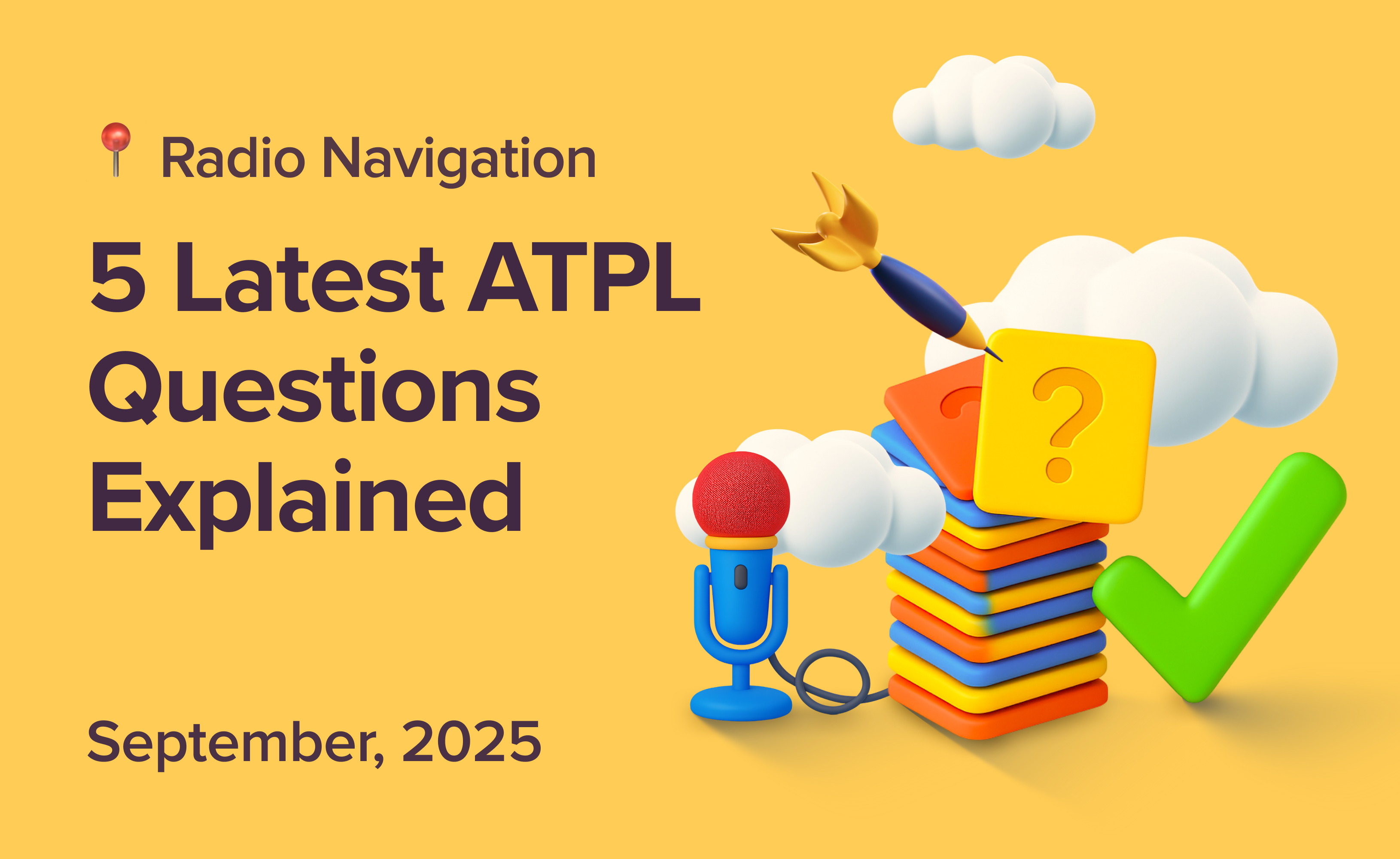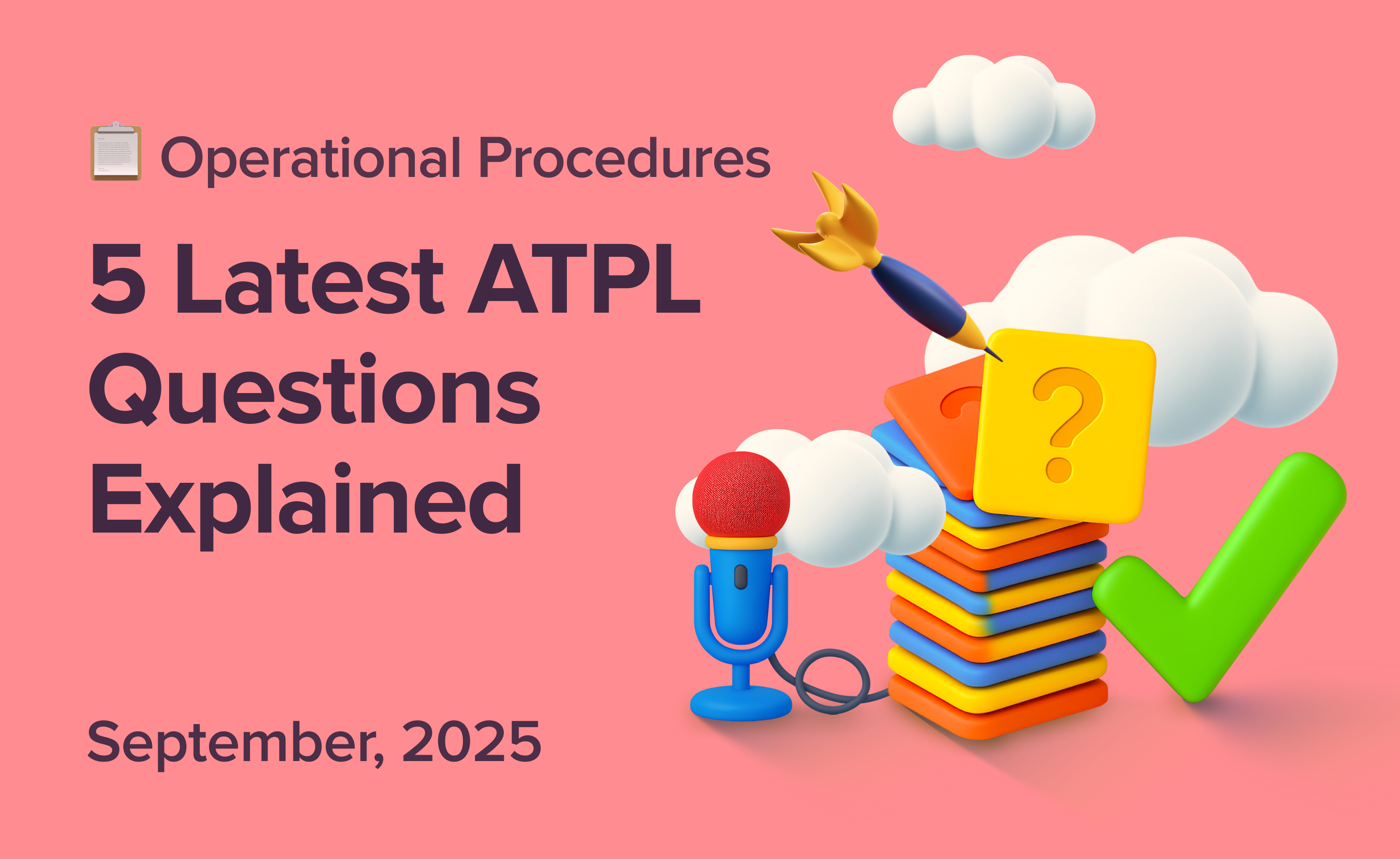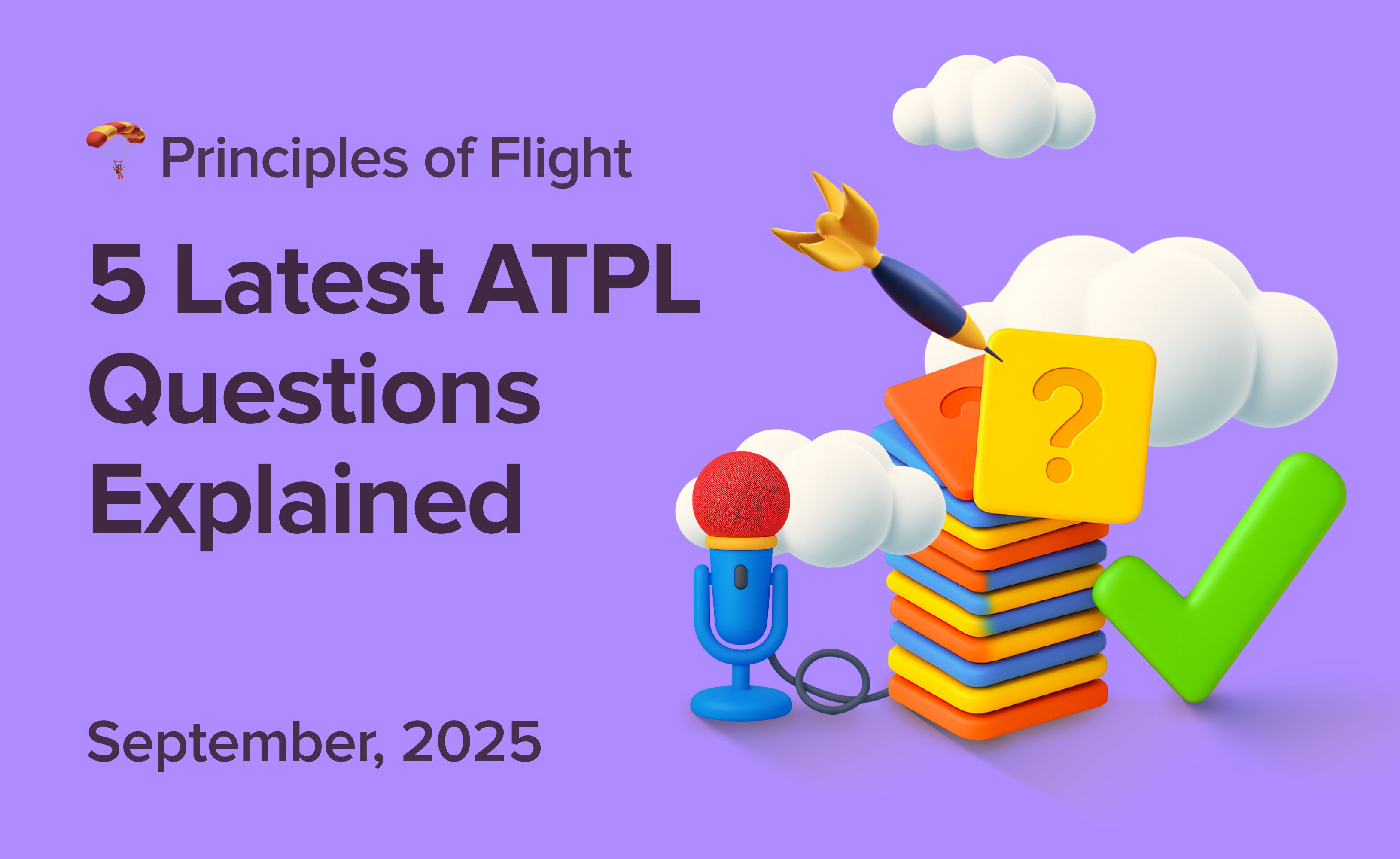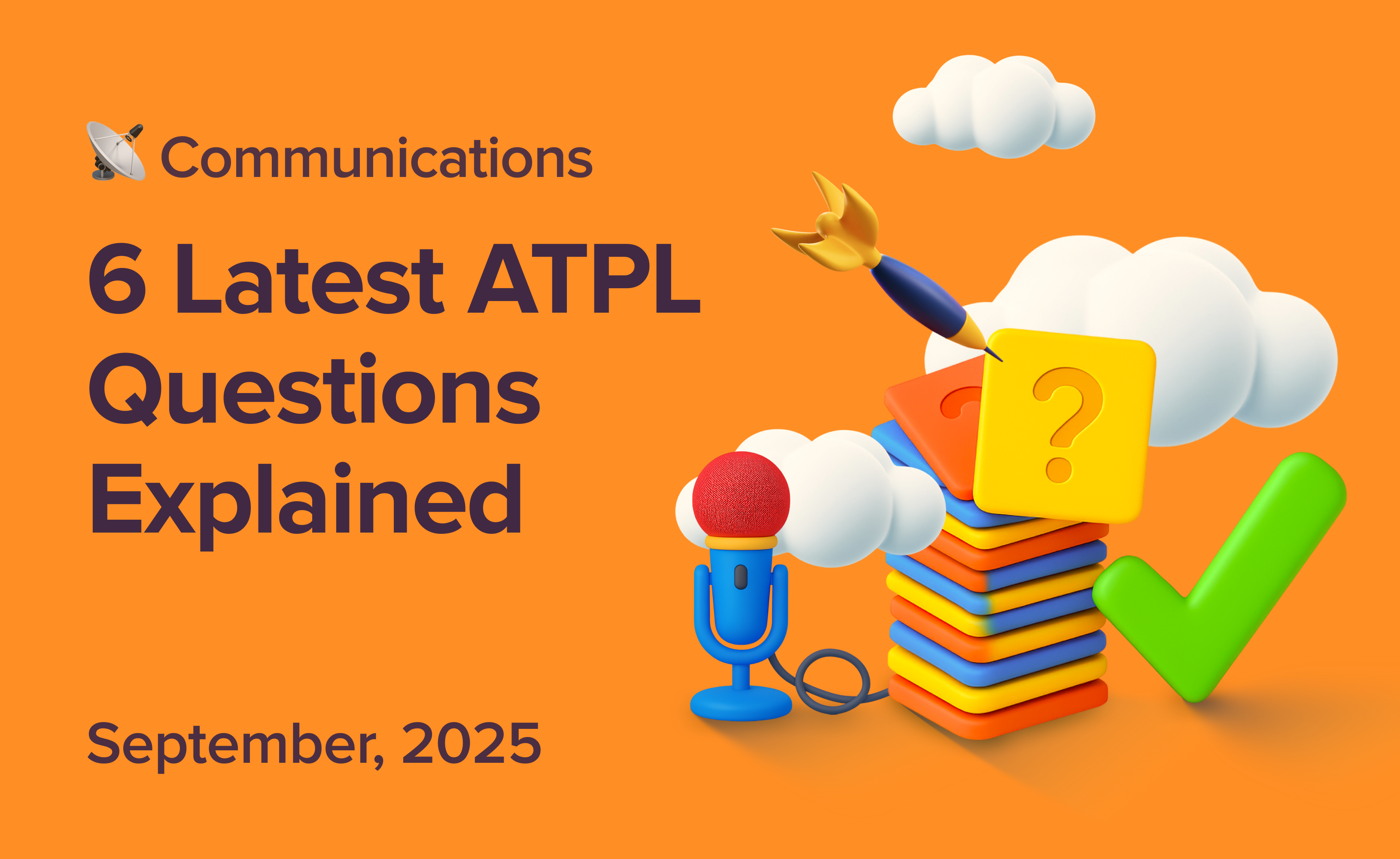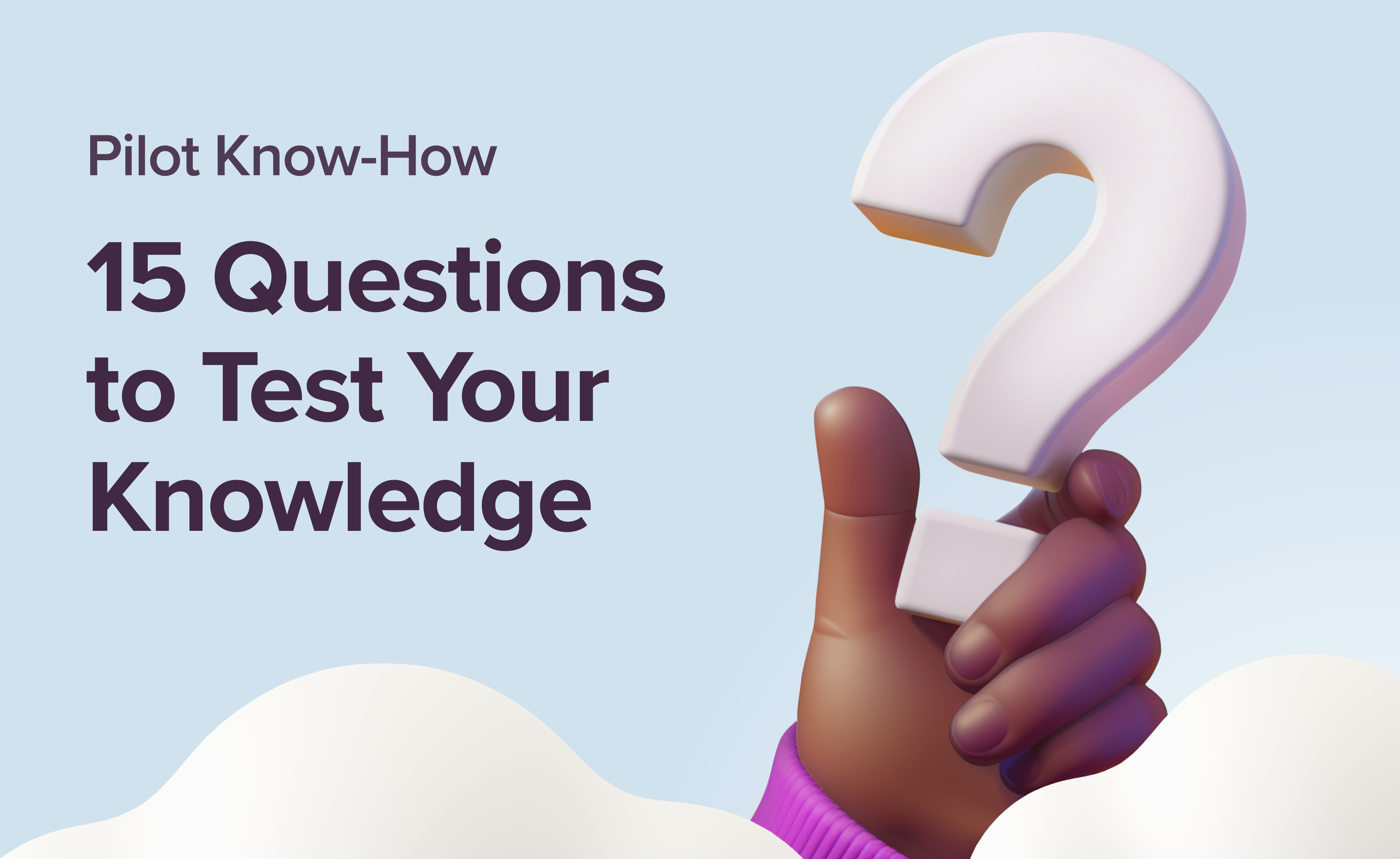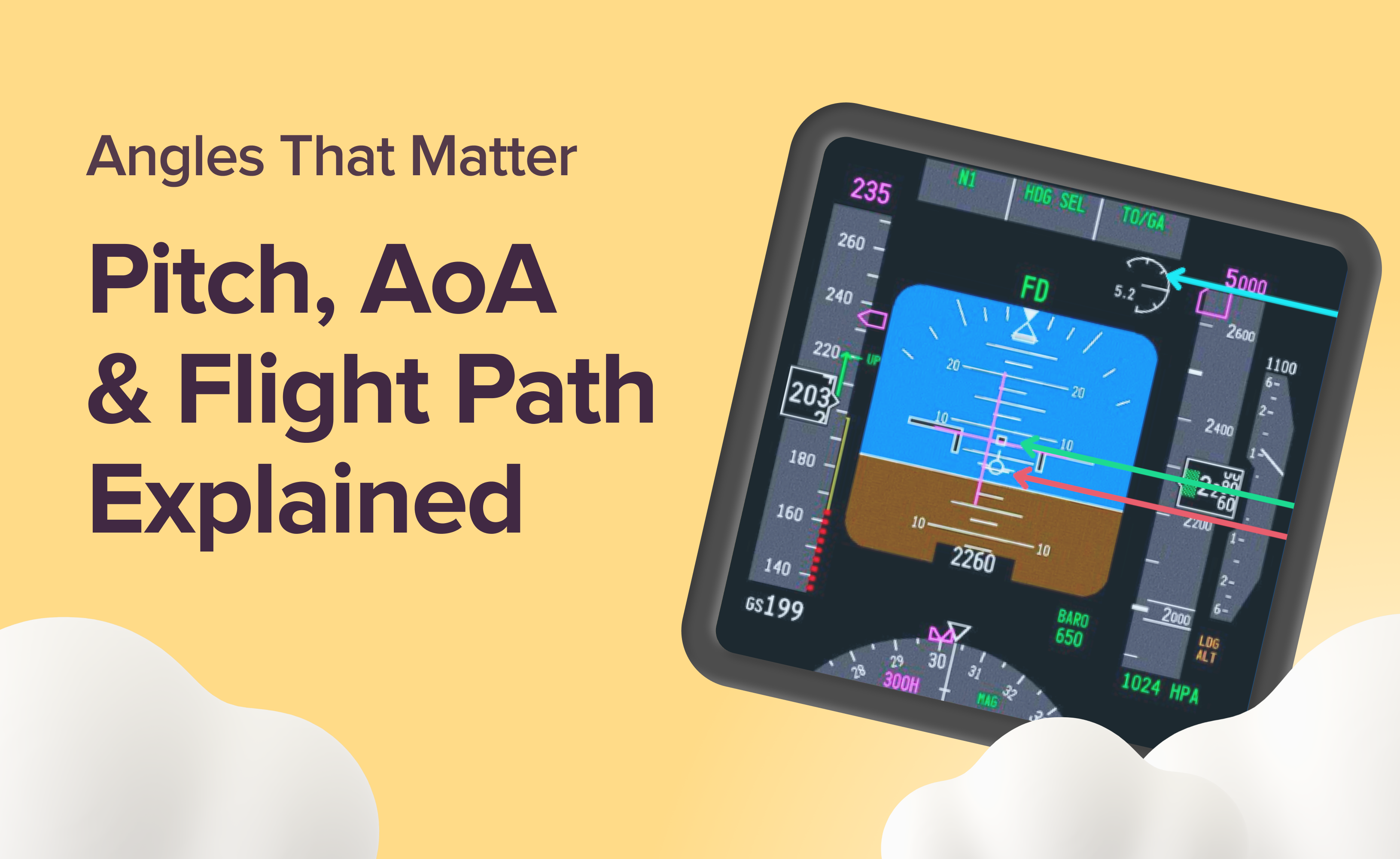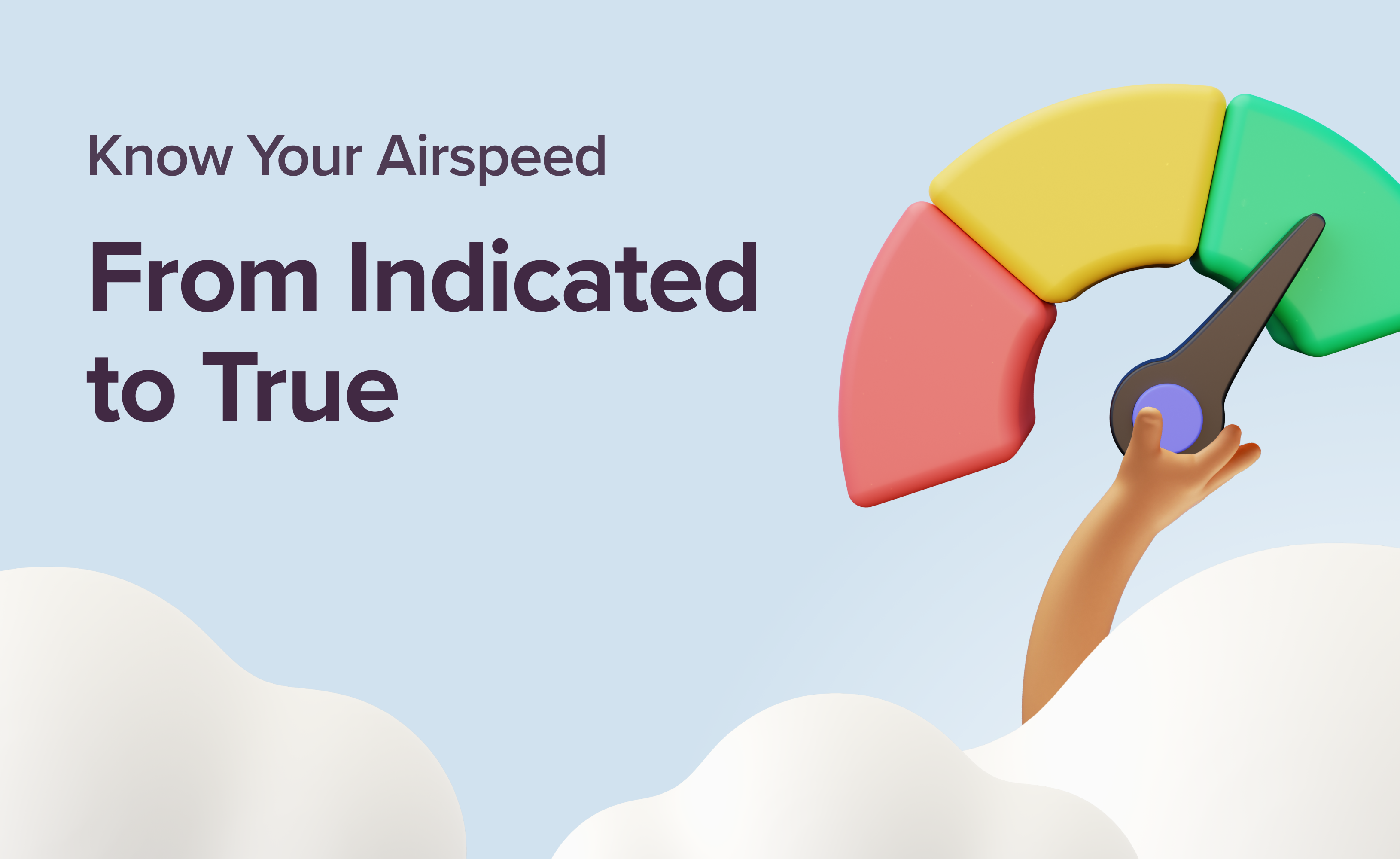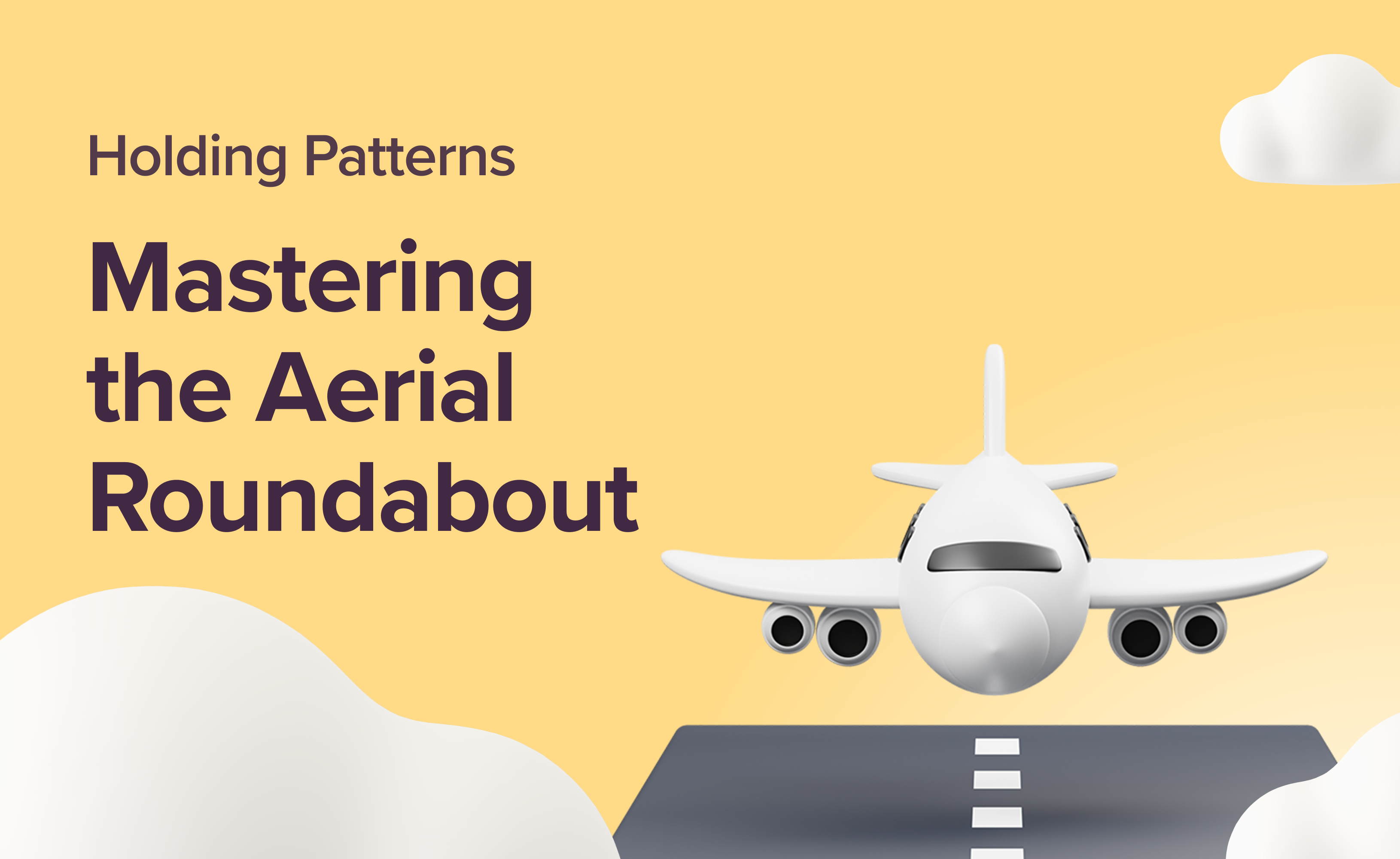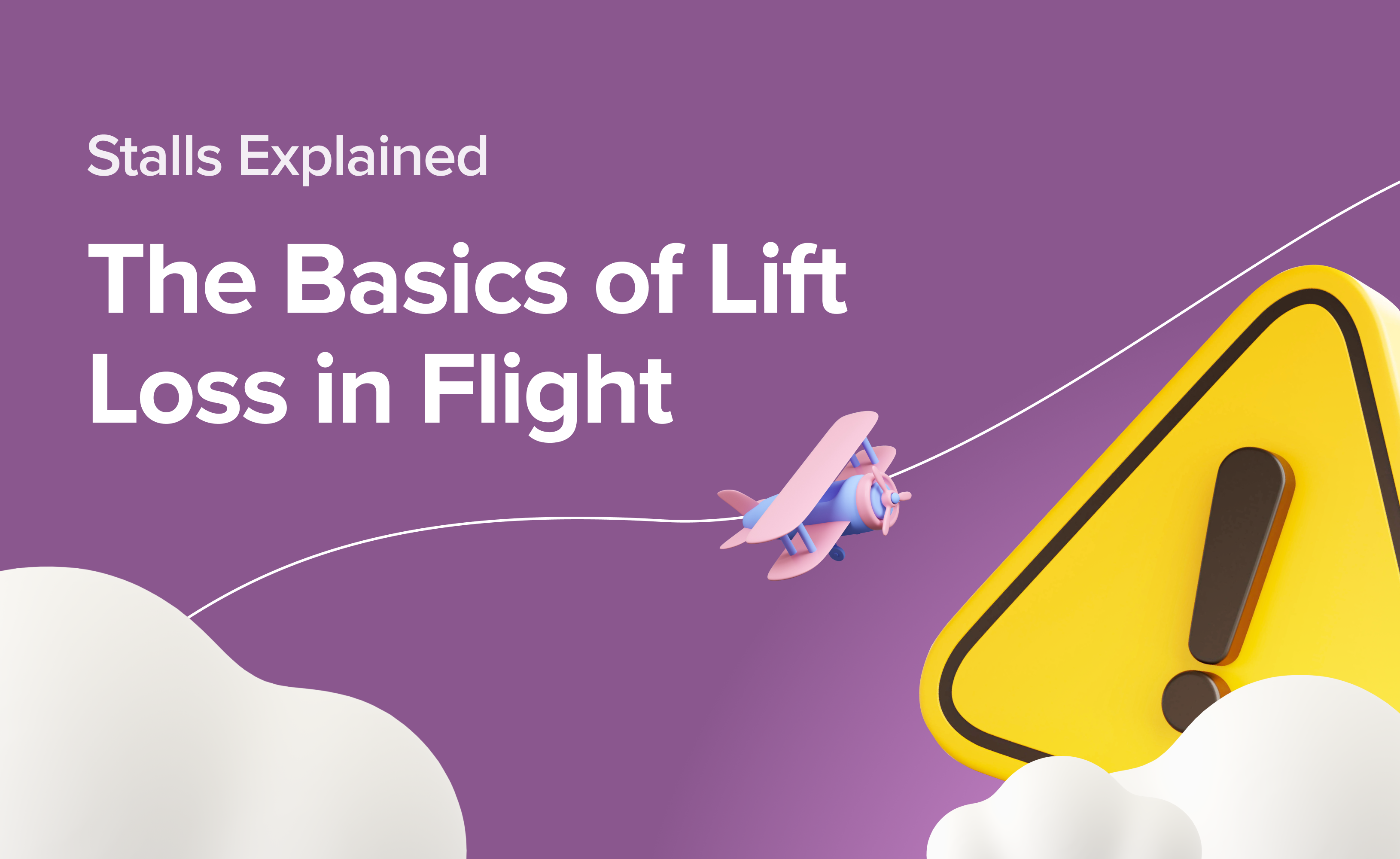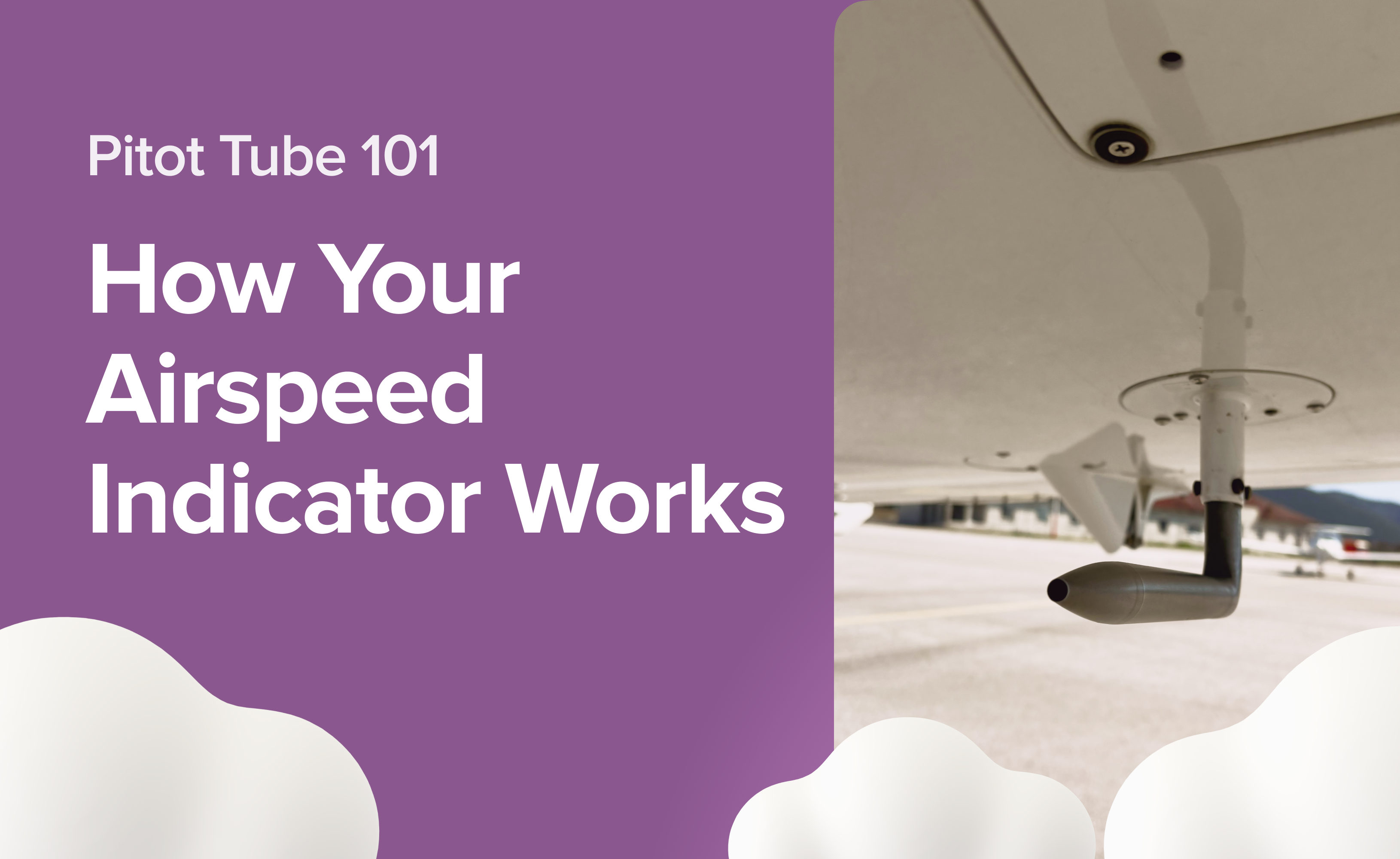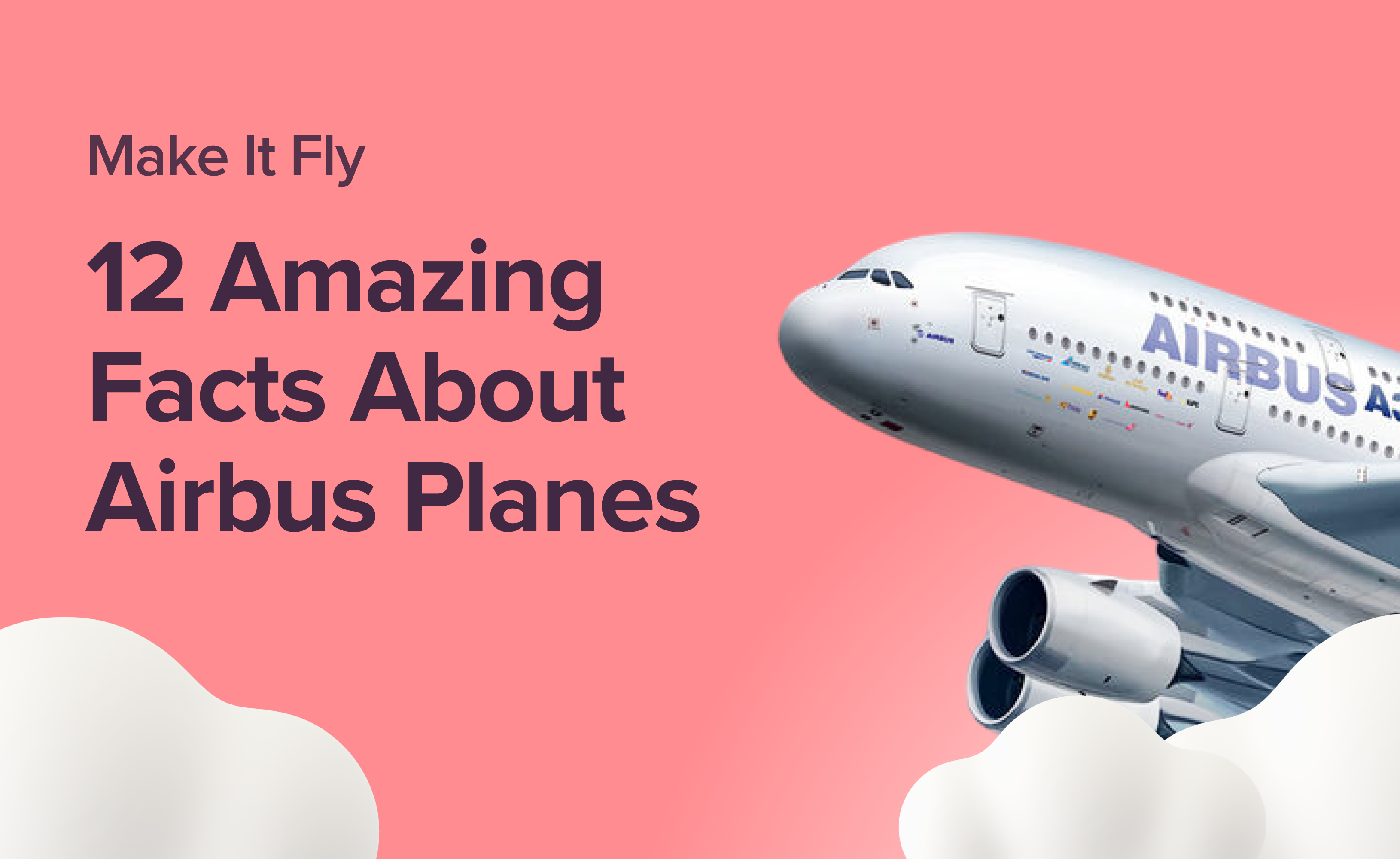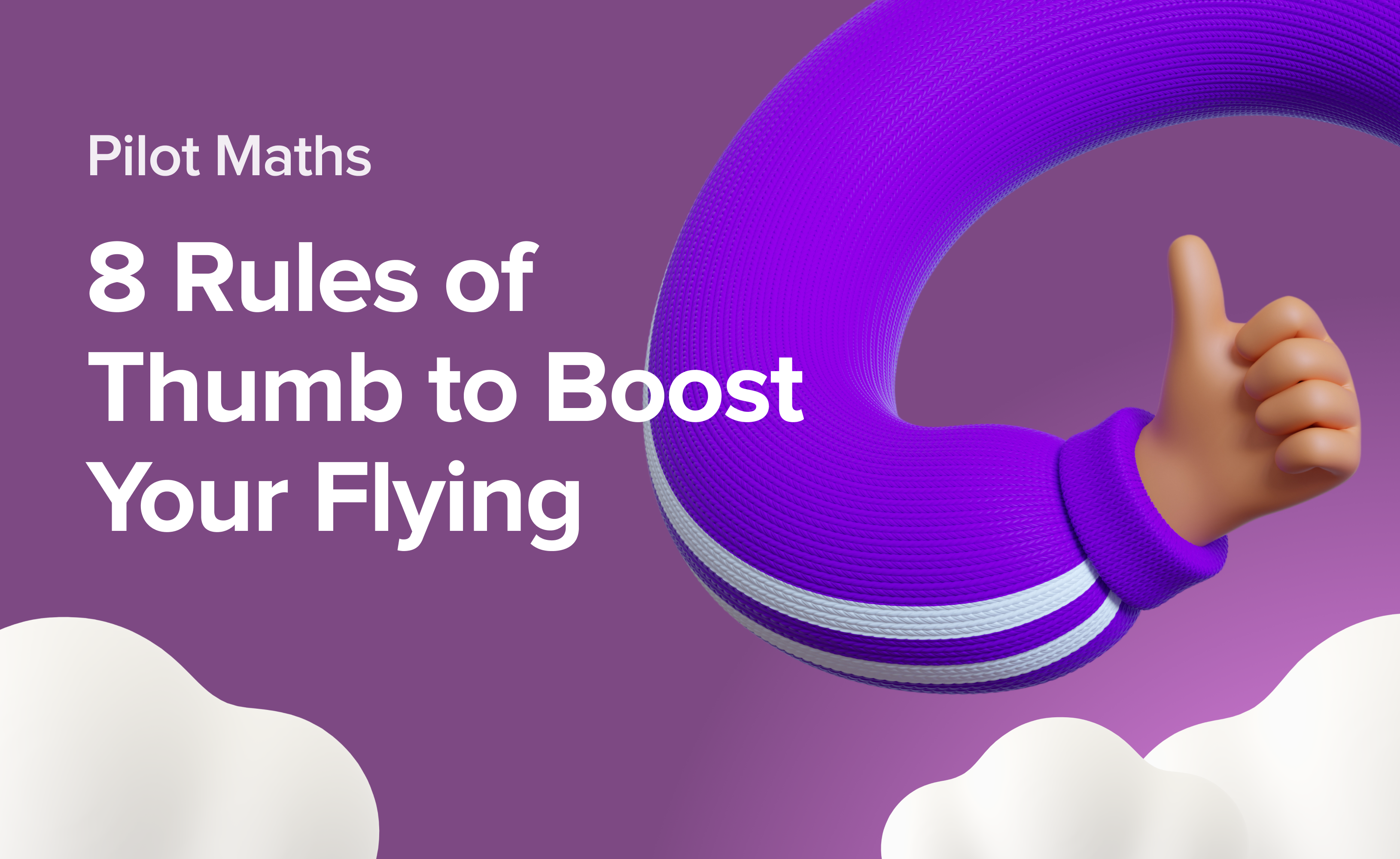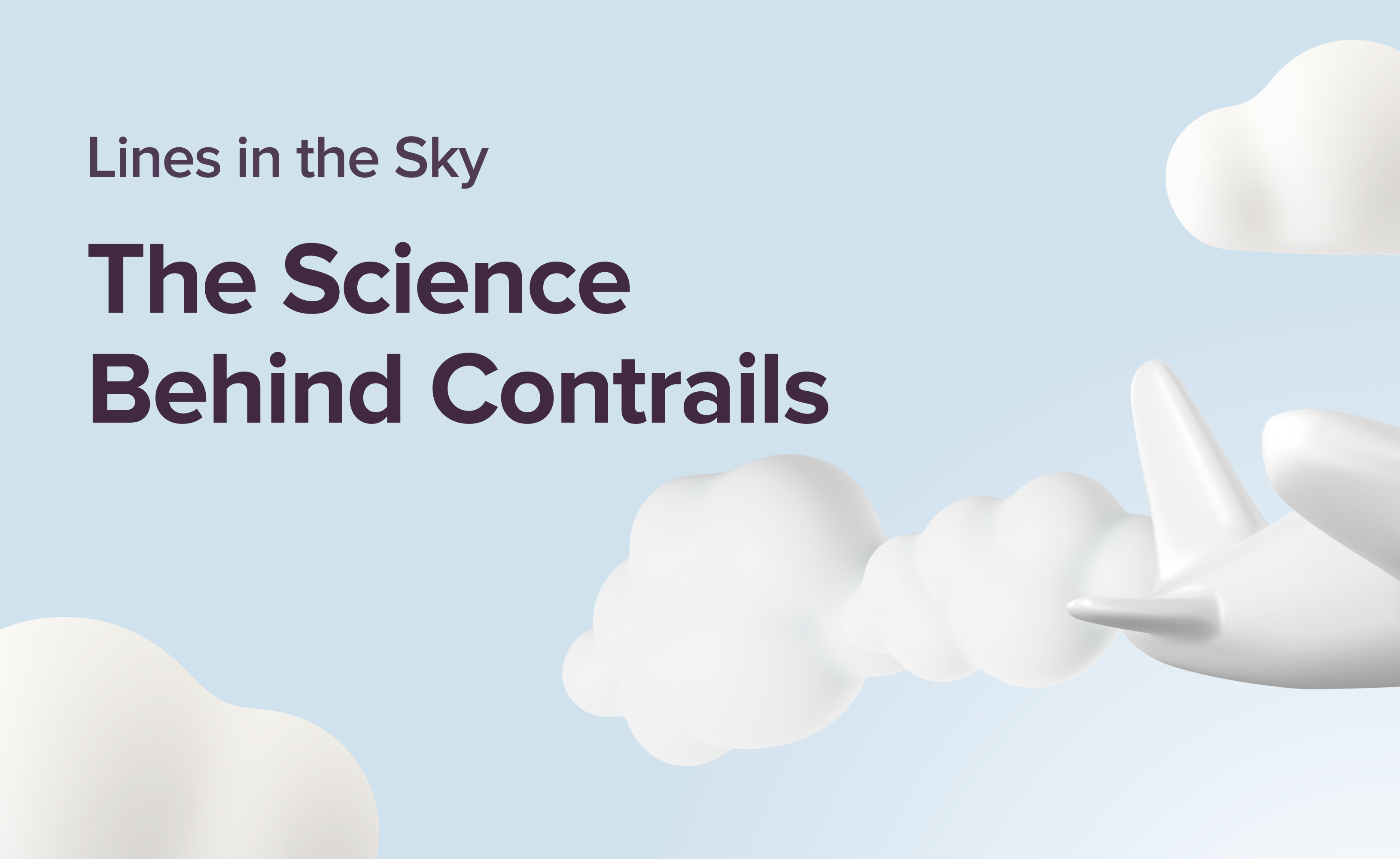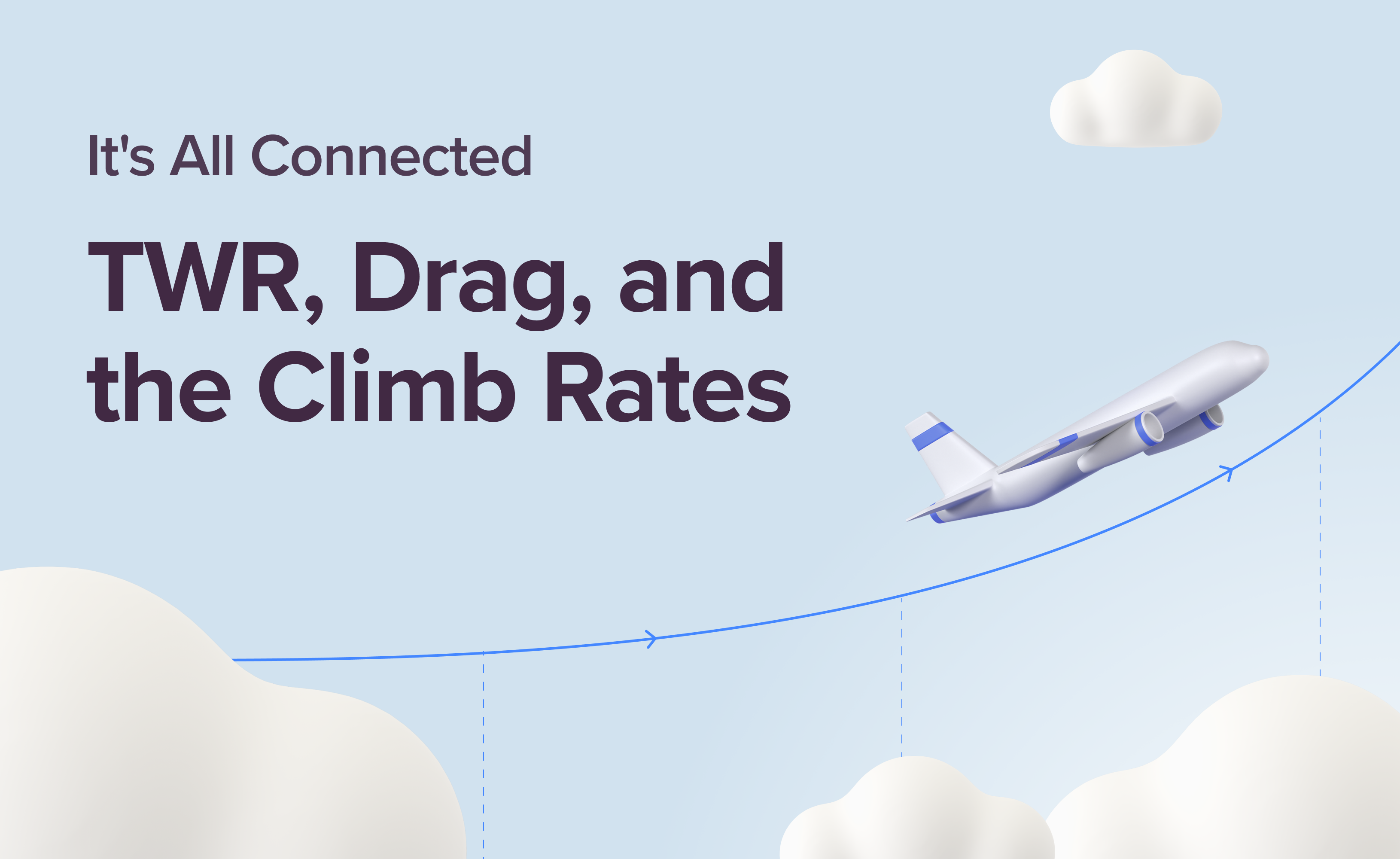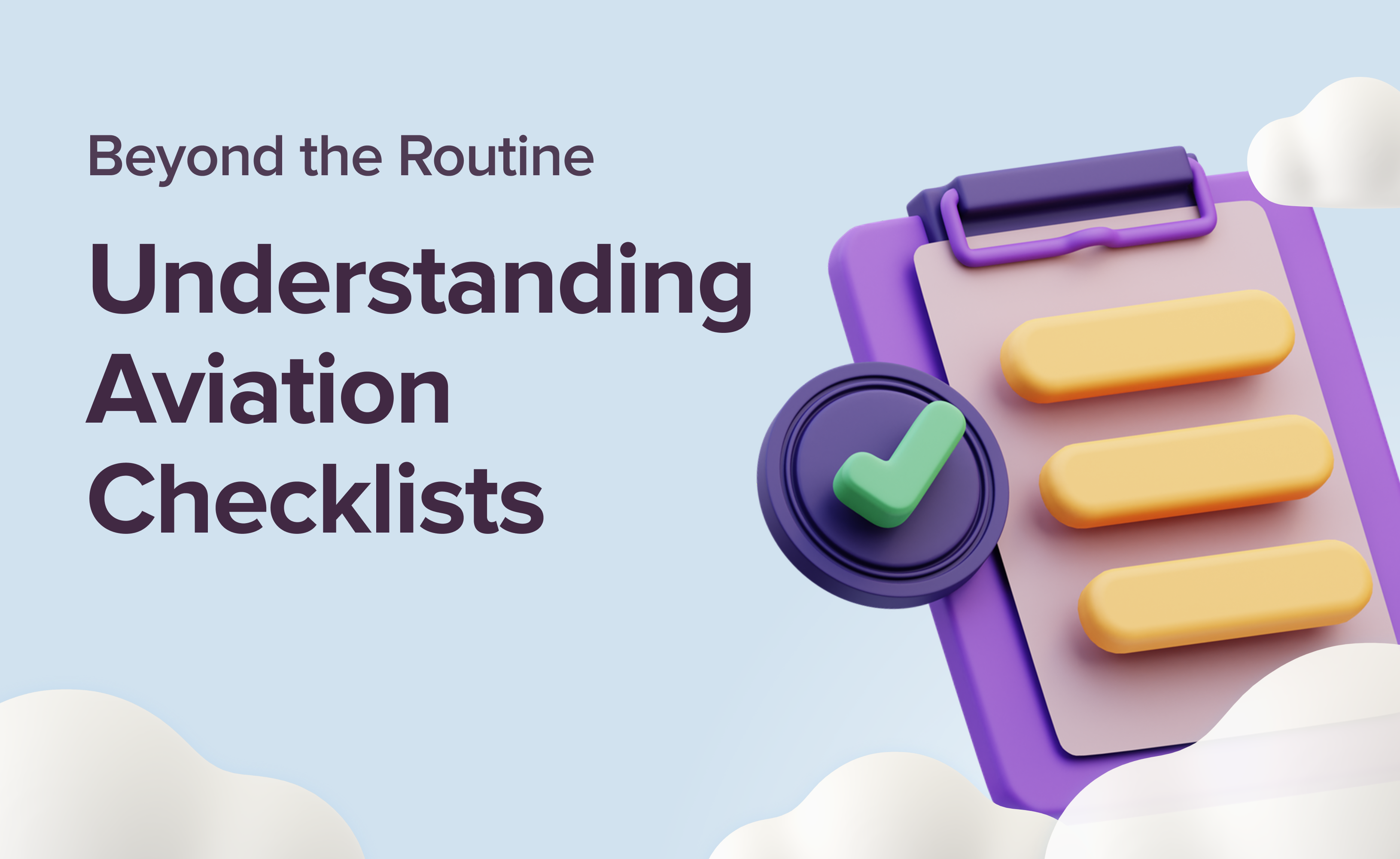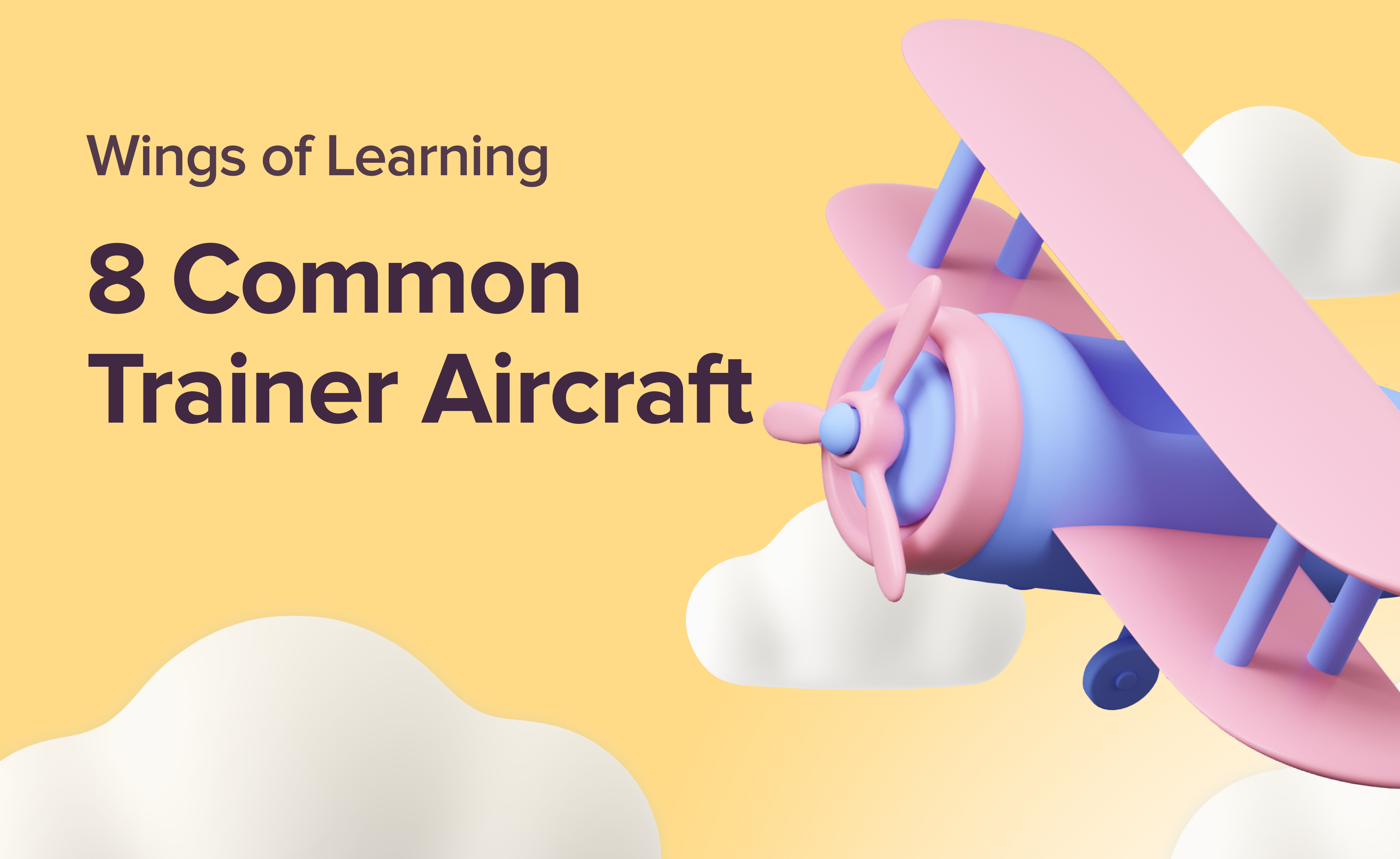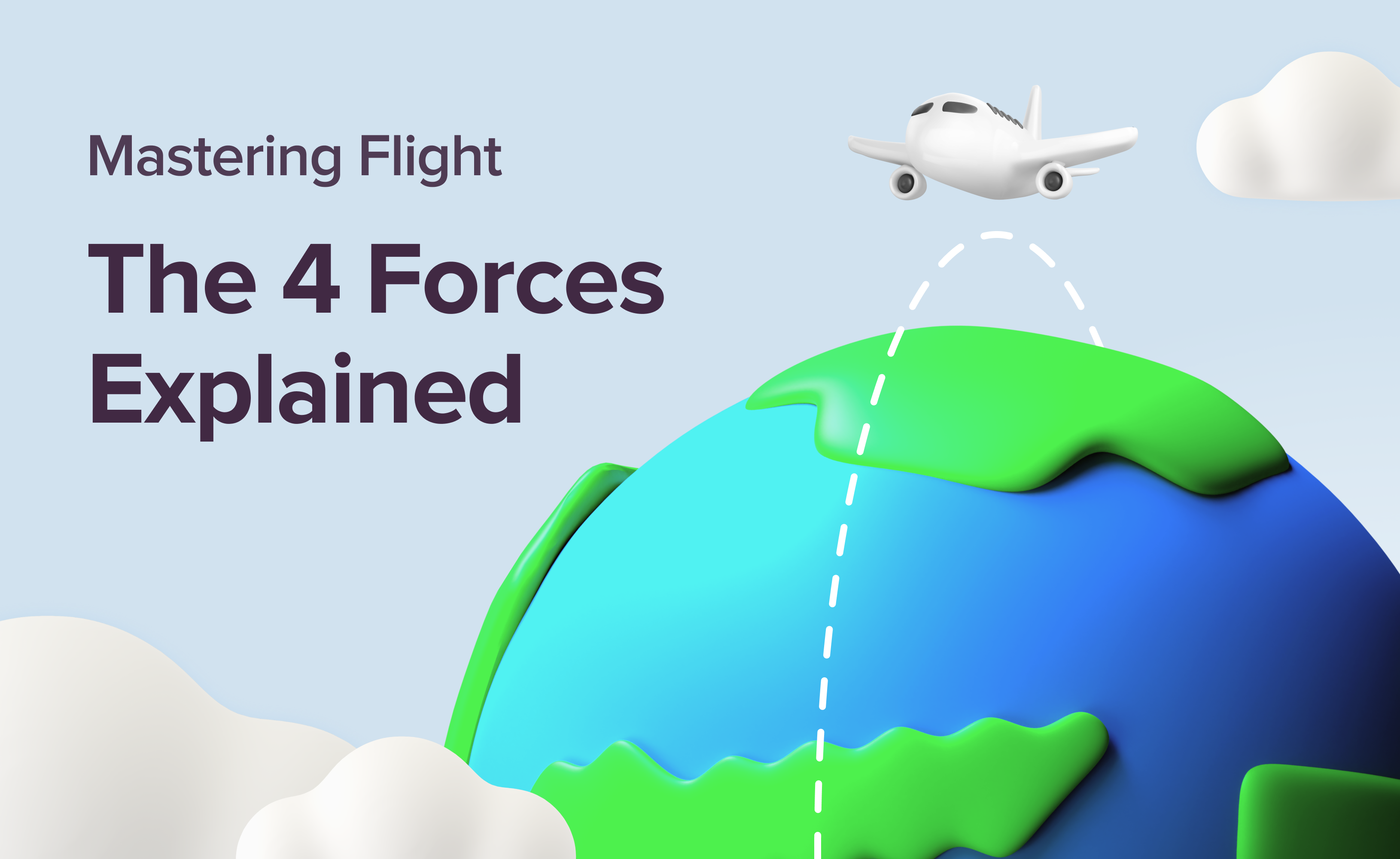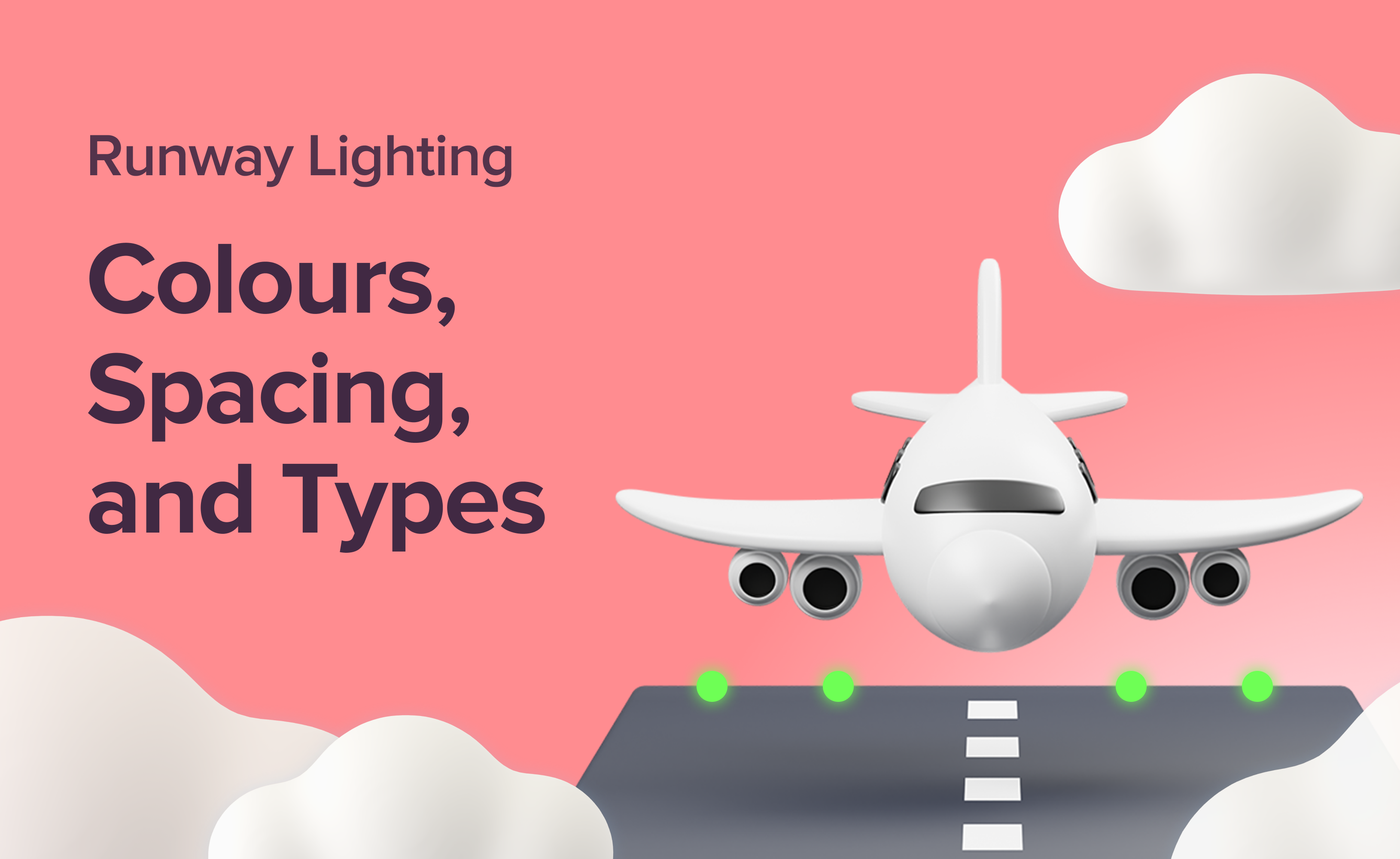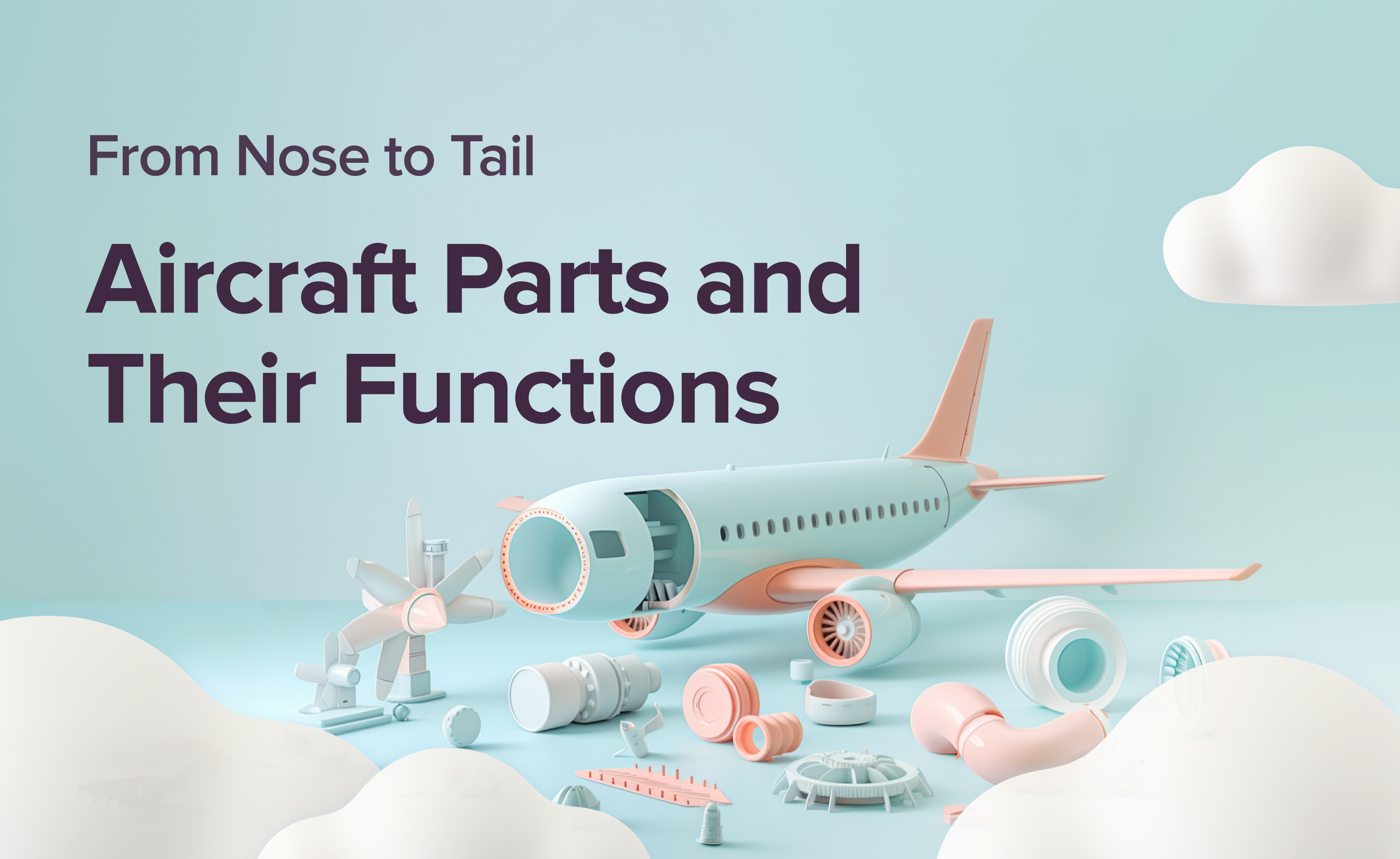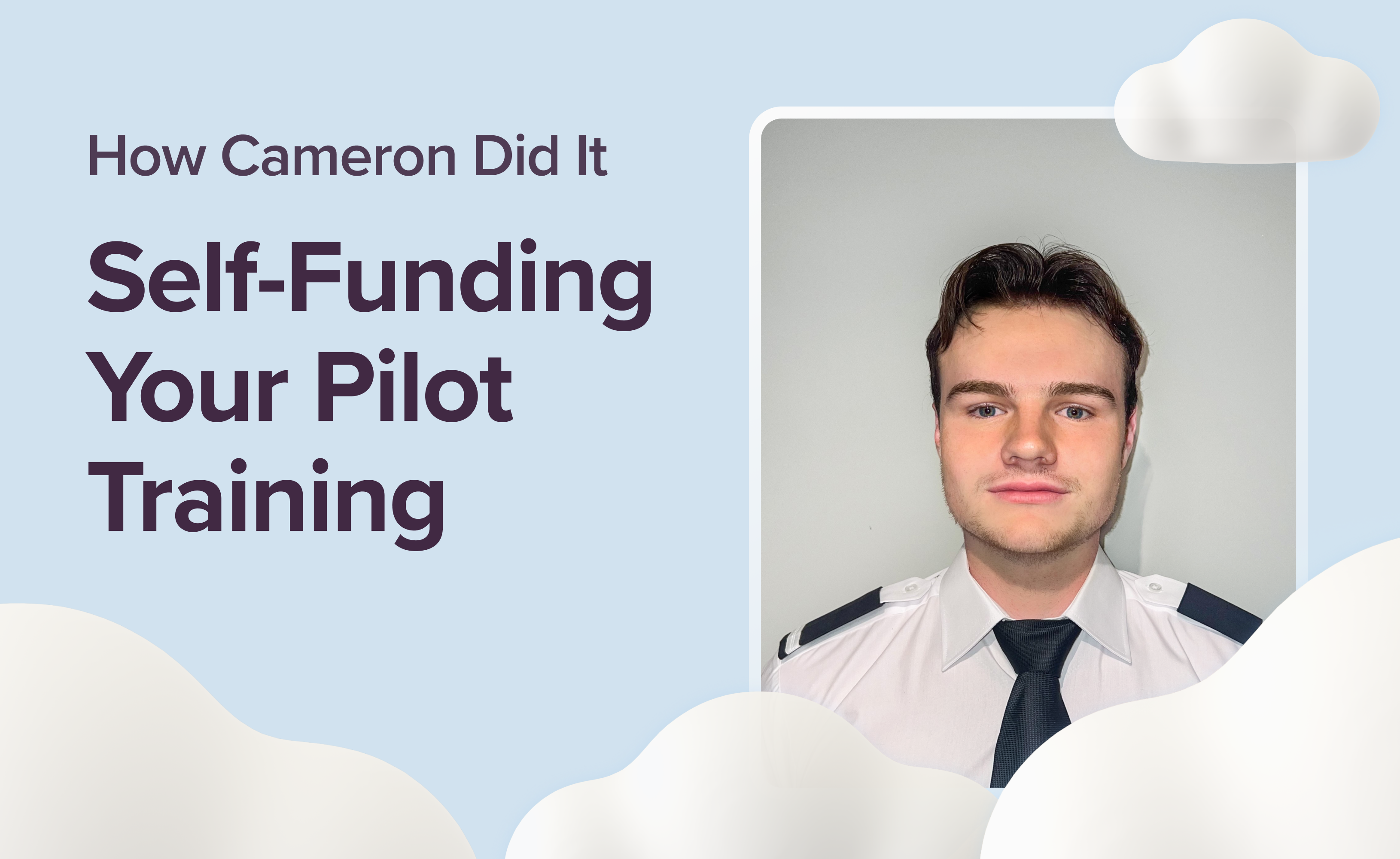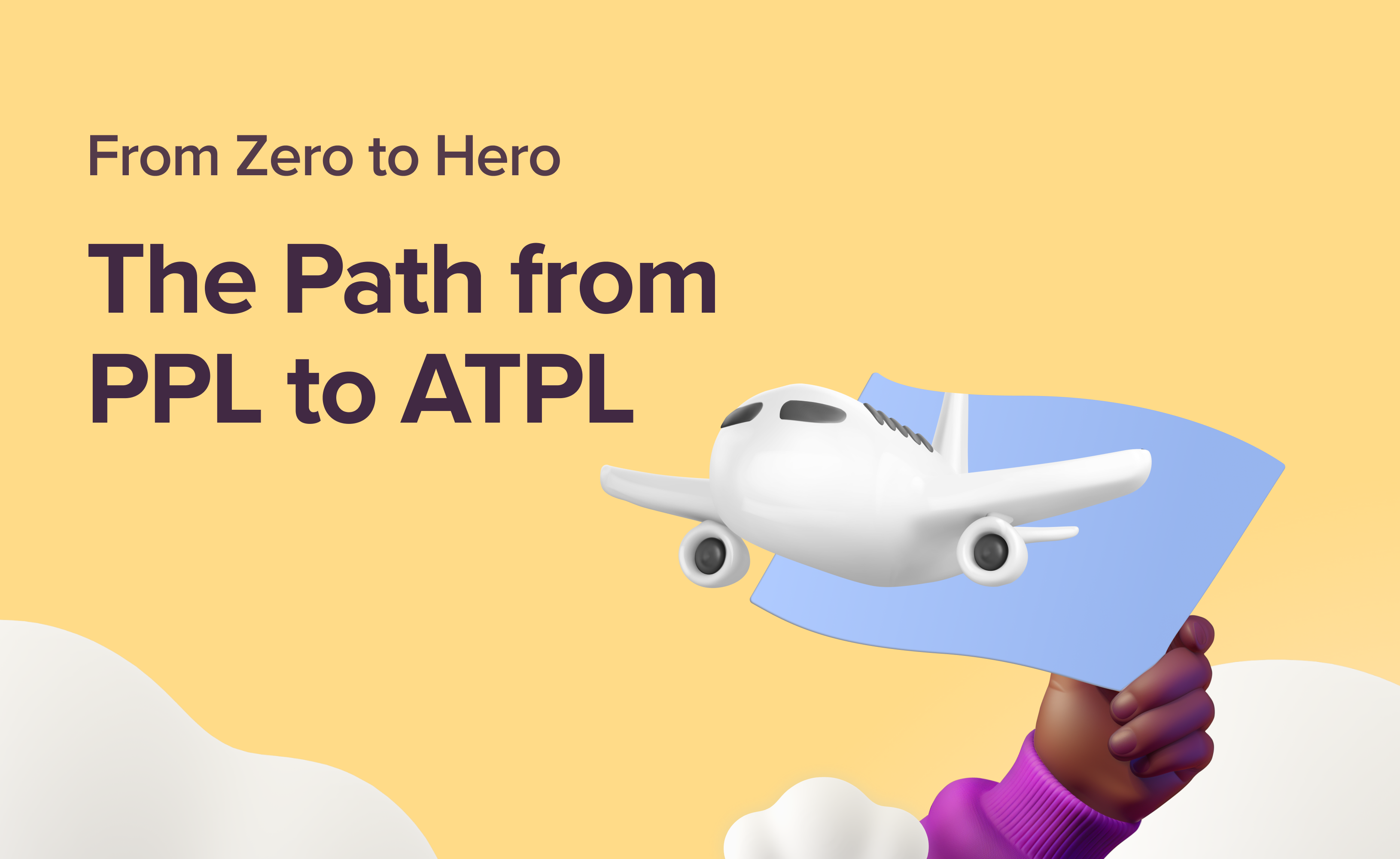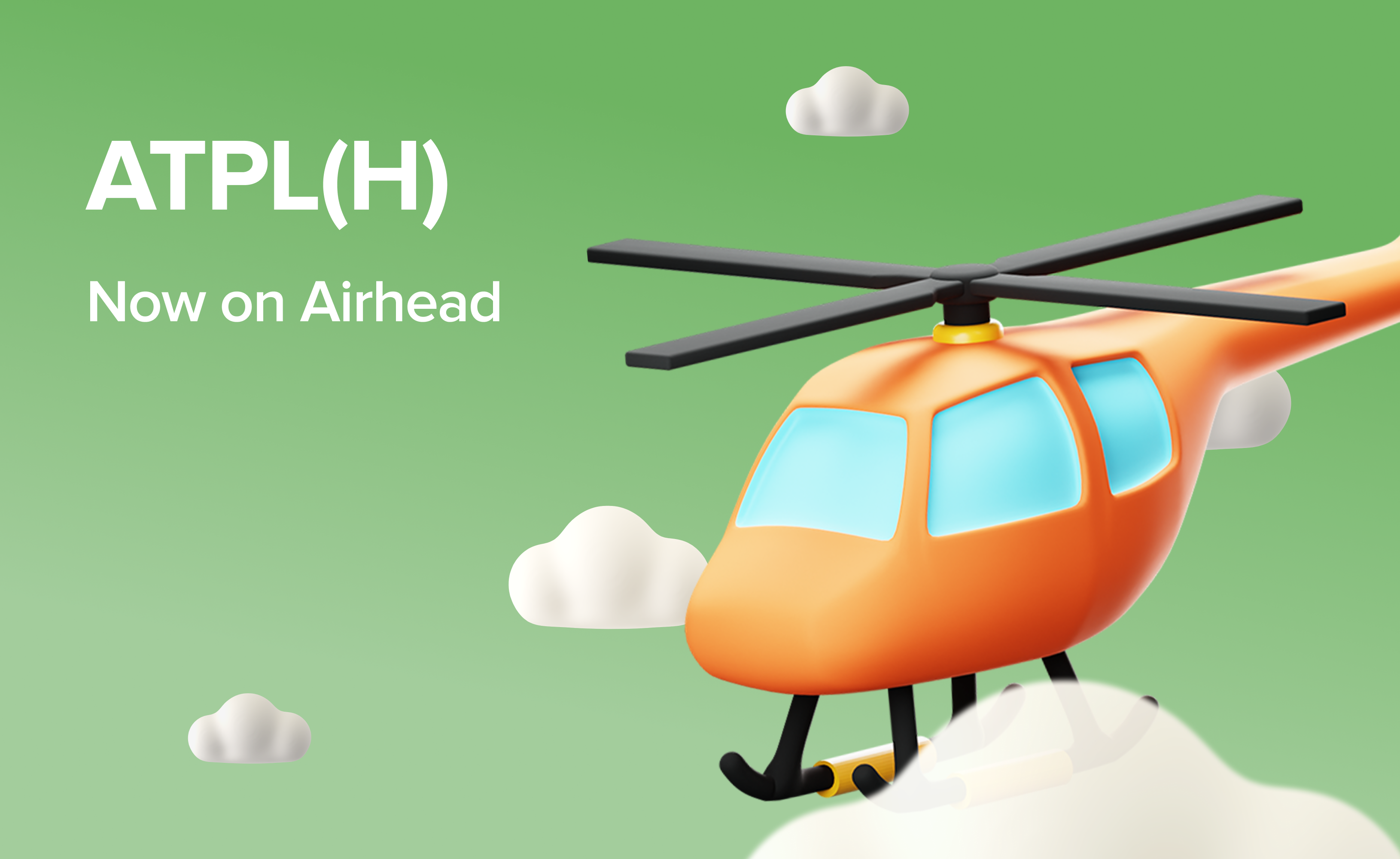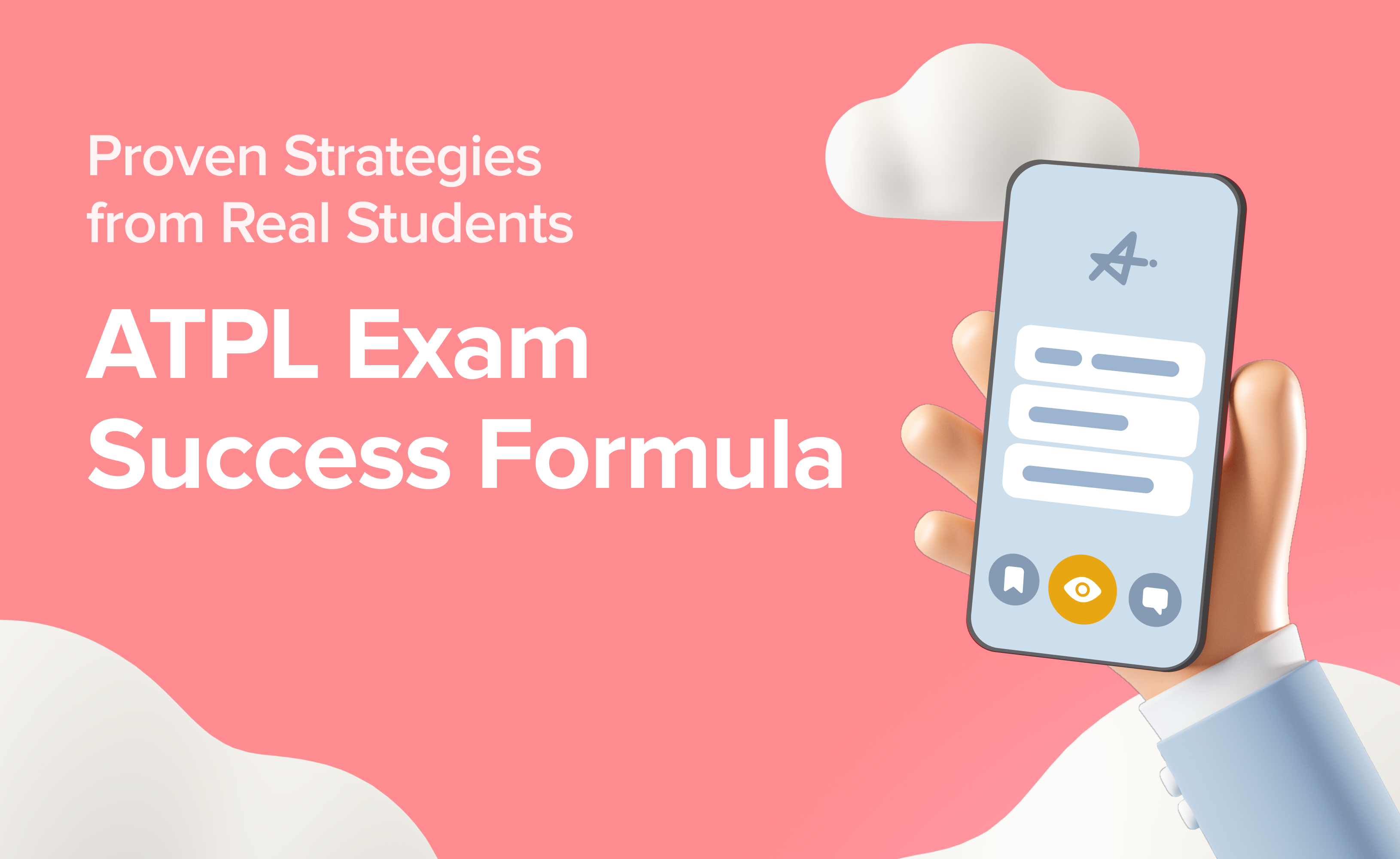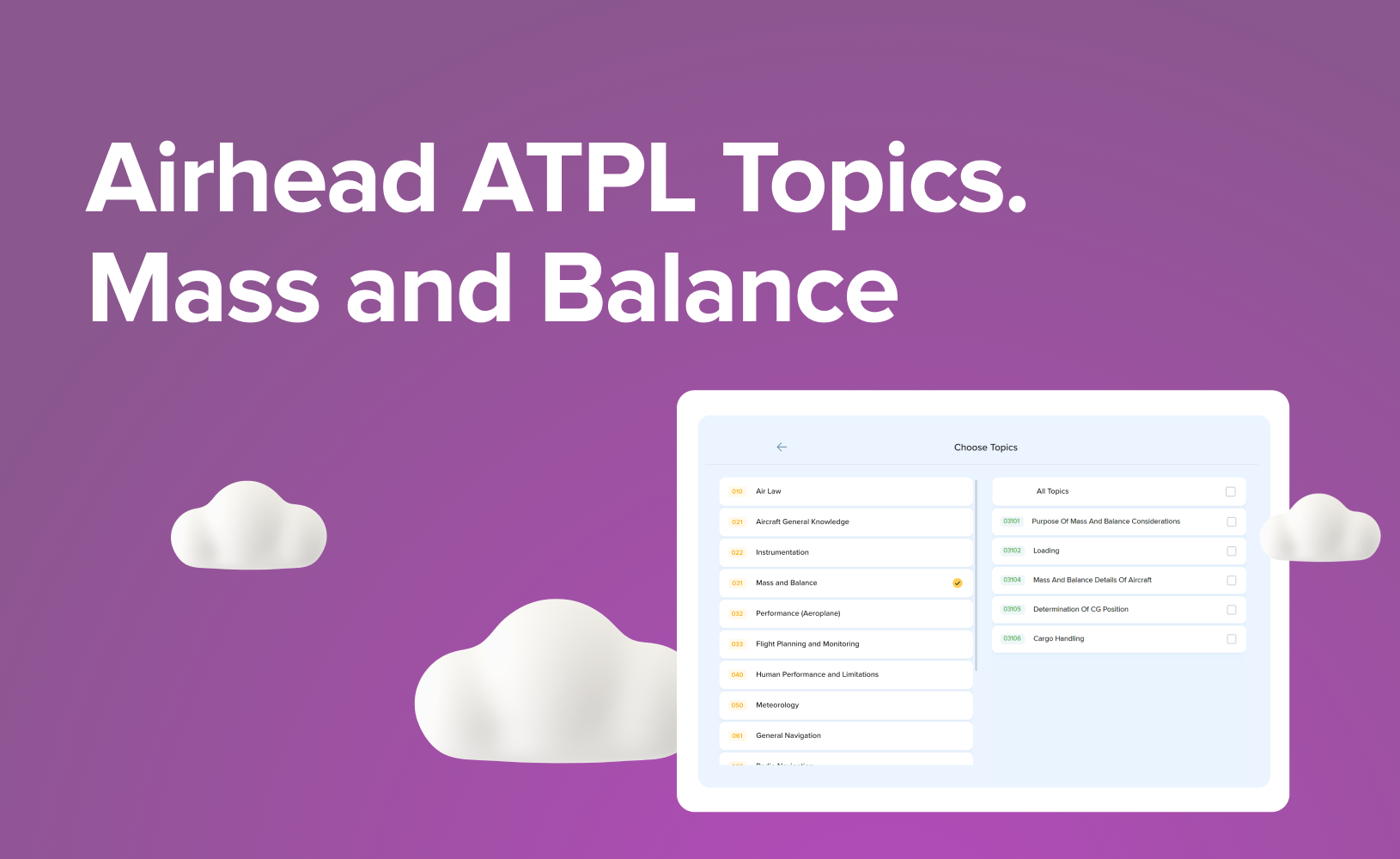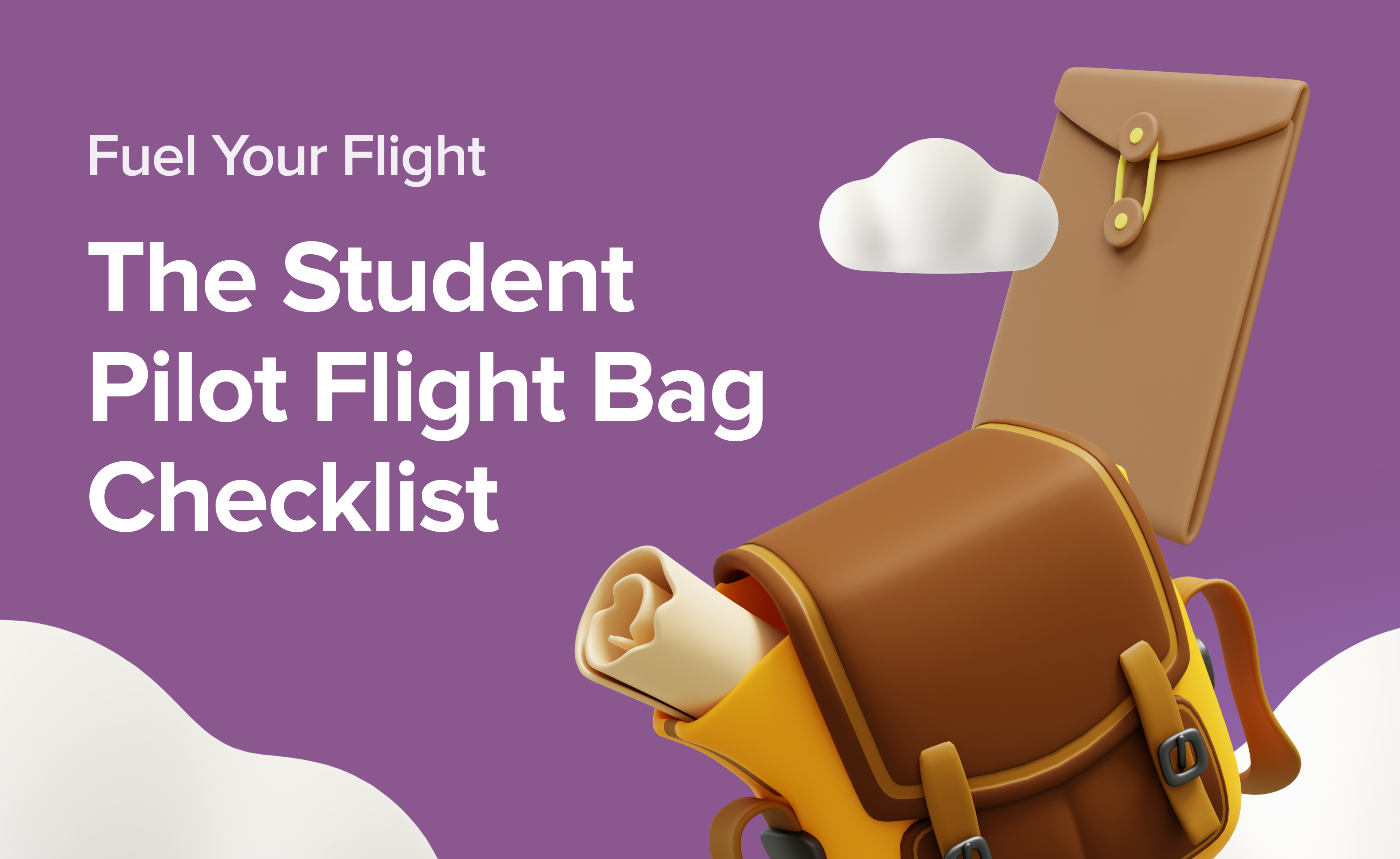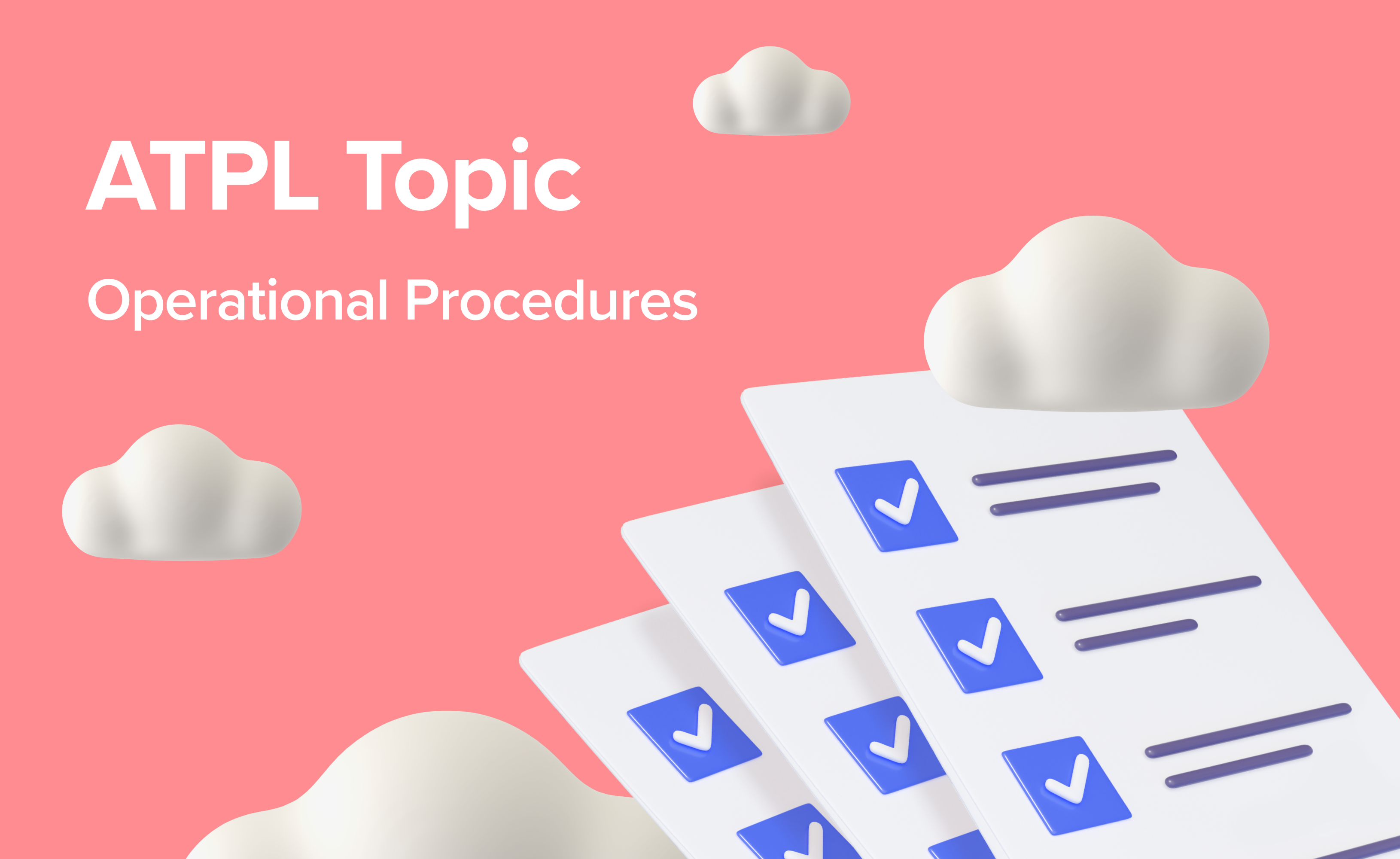Unlocking the Skies: Your Guide to ATPL Exams
Becoming a professional pilot is a dream for many, and for those aiming to fly with an airline, a Commercial Pilot’s License (CPL) is the golden ticket. However, you will need to do the theory exams for an Airline Transport Pilot’s Licence (ATPL) to be able to fly multi-pilot aircraft even as a first officer. In this blog post, we'll unravel the mysteries surrounding ATPL exams by answering some of the most frequently asked questions.
1. What is a CPL and an ATPL?
Let's start at the beginning. A Commercial Pilot’s License (CPL) is the licence that you will be able to obtain when you graduate from a flight school. It is needed to allow you to do any paid work as a pilot (to fly for ‘hire and reward’). It allows you to act as pilot-in-command of aircraft under 5700 kg while flying as a single pilot. To obtain a CPL you must undergo extensive flight training in aircraft and, optionally, simulators and pass several flight tests. Practically, you will also need to operate in poor weather and at night so you will need to pass an Instrument Rating (IR) Test. Therefore, this licence is usually known as a CPL/IR. Also, you will probably need to be able to fly aircraft with two or more engines, so it is usual to do a multi-engine rating. In addition to the practical training, you will need to study aviation theory at an approved school and pass a series of exams that cover subjects such as aerodynamics, navigation, meteorology, and aviation law.
An Airline Transport Pilot License (ATPL) is the highest level of certification a pilot can achieve. It allows the holder to act as the pilot-in-command (or co-pilot) of multi-engine aircraft over 5700 kg and operate as part of a multi-pilot crew. To obtain an ATPL, a pilot must hold a CPL and log at least 1500 flight hours. The pilot must also have passed the theory exams at the ATPL level. This is known as a CPL/IR with ‘ATPL theory credits’.
So when you graduate from flight school the highest level licence you can achieve is a CPL. However, as mentioned above, to operate as a co-pilot on a multi-pilot airliner you must have passed the ATPL theory exams. So it is common to skip the CPL exams and do the ATPL theory exams when training for a CPL. This has the added benefit of meaning you do not need to do any additional theory training when you have logged sufficient flight time to apply for an ATPL, which usually takes at least a couple of years.
2. What is a frozen ATPL?
Strictly speaking, there is no such thing. When people talk about a frozen ATPL or fATPL, they mean a CPL/IR with ATPL theory credits.
3. What subjects are covered in ATPL exams?
There are 13 ATPL subjects covering air law, aircraft systems and instruments, flight planning, aircraft loading and balance, aircraft performance, human performance, meteorology, navigation, operational procedures, aerodynamics, and communications. You can learn more about them here.
4. How long does it take to prepare for the ATPL exams?
The preparation time varies widely depending on the individual and their study habits. However, generally speaking, it can take anywhere from a few months to a year or more to prepare fully for the exams. The time required will also be affected by the training route you chose: you can study full-time, or part-time around a job or family commitments. You may attend a residential school, or study remotely. The theory training may be integrated into your flight training, or you might opt for a flexible route undertaking the theory and flight training separately at your own pace. Get a deeper understanding of the options by reading more about them here.
There is also an important time limit; you must pass all 13 exams within an 18 month period. In some European countries the aviation authority deems the start of the 18 month period to be the first exam, so the preparation for it is in addition; others require the training and testing all to be conducted within an 18 month period.
5. Are there any age restrictions for taking ATPL exams?
In Europe or the UK there are no age restrictions for taking the ATPL exams, but there are limits for obtaining CPL or ATPL licences. In Europe the minimum age requirement is 18 years for a CPL and 21 for an ATPL. There are upper age limits for operating commercially, but if you are under 60 these will not affect you yet!
6. How are the ATPL theory exams delivered?
The ATPL theory exams are conducted by national authorities at examination centres which may be hosted by flight schools or specialist theory training schools. They are formal examinations, these days exclusively delivered on computers. Most questions are multiple choice although there are some authorities that have other question styles such as multi-select where you choose several answers from a list.
7. How much do ATPL exams cost?
The cost of obtaining a CPL in Europe can vary between about €60,000 to over €100,000. The theory training element is a small part of this; a distance learning course may cost under €3000 although residential theory courses are more expensive. Although the exams are the same across Europe, each Aviation Authority sets their own exam fee price, so expect to pay anything from €20 to €90 per exam.
8. What is the pass rate for ATPL exams?
The pass rate for ATPL exams varies depending on the subject and training organisation. However, on average, the pass rate is around 80%.
9. Can I retake ATPL exams if I fail?
Yes, you can retake the ATPL exams individually by subject if you fail. There's sometimes a waiting period and there is a limit on the number of attempts allowed before you have to retake all the exams.
10. Do I have to take the exams all at once?
No; it is quite common to take the exams in several sittings, although you are limited to 6. It is usual, therefore, to split the study and exams into two or more modules or phases. Schools have different ideas about how the subjects should be grouped together, but unless you are doing a course where you have little control over how you study, you may take the exams in the order you prefer, spread over the number of sittings you are comfortable with. Remember to plan for failures though; if you planned to sit your exam in 6 separate sittings and failed one exam in the last sitting, you would have to start all over again! This is one of the reasons most schools will deliver the training in 2 or 3 modules.
11. Are there any medical requirements for obtaining a CPL?
Yes, there are medical requirements for obtaining a CPL. You will need to pass what is called a Class 1 medical conducted by an authorised aviation medical examiner. The medical exam assesses the pilot's physical and mental health to ensure they are fit to fly and can handle the stresses of the job. You can learn more about the medical exam here.
12. What's the difference between ATPL exams and other pilot exams, like the CPL or PPL exams?
The key distinction lies in the depth and breadth of knowledge required. ATPL exams delve into more advanced and comprehensive topics compared to CPL or PPL exams, reflecting the increased responsibilities of multi-pilot operations and the complexities of air transport aircraft. The PPL exams are quite straightforward, whereas the CPL exams cover about 70% of the ATPL syllabus. However, if you were to do the CPL exams, you would be unable to fly as part of a multi-pilot crew or operate aircraft over 5700 kg and would get no credit for that 70% already covered when you come to study for your ATPL in a few years. That is why few pilots will bother with the CPL exams in Europe and will skip straight to ATPL theory after their PPL, even though they cannot obtain an ATPL licence yet.
13. Can I study for ATPL exams online?
Indeed, many aviation training providers offer online courses and study materials to prepare for ATPL exams. However, keep in mind that practical flight training requires in-person instruction.
14. How can I stay current with ATPL knowledge after passing the exams?
It would be a mistake to think that the ATPL theory is just a right of passage, learn, pass and forget. Pilots with that approach will get an unpleasant shock when they apply for their first airline job and are asked ATPL theory questions in the interview! Unlike many professions, pilots are tested throughout their careers and need to stay up to date with the latest aviation knowledge and safety practices. So it is important to understand the theory behind exam questions rather than rote learning of the questions and answers.
Many pilots will use their ATPL theory course material as reference material throughout their careers, and dip into ATPL question banks before interviews when changing jobs.


